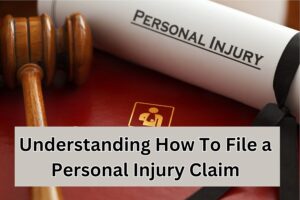Legal Consequences of Drinking and Driving

Disclaimer: The content of this article should not be taken as legal advice and should only be used as a resource to provide information about the legal consequences of drinking and driving. You should always seek for the services of a lawyer specializing in drinking under the influence cases to give you a more in-depth view of this matter.
Most of the time, you drive yourself home after hanging out with friends. You always have fun whenever you’re with your friends, and you don’t mind going home in the wee hours of the morning. And yes, this kind of “hanging-out” involves drinking alcohol – what fun would it be without alcohol, right?
However, because your friends know how drunk you can be at times, they’ve warned you about the dangers of drinking and driving. They’ve even offered to drive you home instead of driving your car. But you believe that you can still manage to drive home whenever you’re drunk, so you never bothered accepting any of their offers. After all, you’ve never been involved in a car accident in the past, so there’s no point in changing what you’re already used to – or so you thought.
You might think that drinking and driving is okay because no accident took place whenever you drive home from drinking with your friends. But have you even thought that accidents are only one of the consequences you’ll get if you continue to drink and drive? There are also legal consequences with this kind of behaviour and this should be reason enough for you to change your ways. If you don’t know what these legal consequences are, read on to know more:
Your license will be suspended:
You don’t need to be ultimately convicted of driving under the influence (DUI) before your license will be suspended. Once your chemical test shows that you drove with a Blood Alcohol Content of 0.08%, you can bid your license goodbye – and that means you won’t be able to drive around town as usual as you used to do. Different states have a different take on this matter, but most states would suspend your license for 30 days if you’re a first time offender. But if you have prior DUIs or if you refuse to take a chemical test, license suspension might increase.
You’ll have to undergo treatment:
There are many states which require DUI offenders to seek treatment once authorities have determined that you have a drinking problem. If you don’t meet with their condition, you’ll never get your license back, and you might not be able to drive again. Some might consider this as a light sanction – since you’re also learning in the process – but for some who have other priorities in life, seeking treatment might be challenging due to time and budget constraints.
You’ll have jail time:
Even if you’ll be caught for DUI for the first time, you’re not exempted from jail time. Most of the states have mandatory jail time even for first-time offenders, and would usually require you to spend a minimum of 72 hours in jail. If you commit the same violation again, your jail time can increase to a 90-day sentence. So if you’re not ready to even spend a night behind bars just because you were drunk, now might be a good time to consider being sober when you drive.
However, in the event that you’re already dealing with drunk driving charges in Oakland or wherever you may be located, hiring a dedicated DUI lawyer can be the best decision you should make.
Spending jail time after a DUI conviction can be life-changing. But with legal help, you can have better chances of getting your life back. Your lawyer can develop a solid defense strategy to prove your innocence and dismiss the case against you.
For example, they can raise the defense that the traffic stop was improper due to a lack of probable cause on the part of the arresting police offer. They can also defend you by saying that the field sobriety or the breathalyzer test was improperly administered due to some intervening factors, like an unmaintained or improperly calibrated device.
You’ll pay several fines and fees:
Paying for fines is never a good way to spend your hard-earned money, especially if there are a lot of ways to save yourself from this kind of situation. Once you get charged with a DUI offense, you’re expected to pay at least $500 (but rates will usually vary per state), and you’ll be paying for your license reinstatement and other court fees. If you’re someone who’s on a tight budget, this might not be good news for you.
You’ll be treated as a criminal:
You’ve been very careful with everything that you do because you have this image to uphold but have you took the time to consider the setbacks you can get once you’re caught under the influence? Once an officer confirms that your Blood Alcohol Content is at 0.08% or higher, you’ll be handcuffed and taken to jail. Sure, DUI can be considered as a minor offense to some, but the consequences of this action can be comparable to other criminal actions. You’ll be treated like a criminal just because you chose to drive while you were drunk.
You’ll deal with enhanced penalties and be required to install interlock ignition devices:
When you’re charged and convicted of DUI, you’ll have to face some enhanced penalties as part of the legal consequences. Generally, an enhanced penalty is an additional severe penalty assessed when the crime resulted in a terrible situation. For example, you may have to spend extra time in jail if it’s found that you have a high BAC, there’s bodily injury or property damage involved, or there’s a minor child in the vehicle while you’re driving and impaired with alcohol.
In addition, you’ll also be required to install an interlock ignition device if you’re a first-time DUI offender. This mandatory installation serves as a condition to allow you to drive a motor vehicle again.
Conclusion
Your friends warned you about the dangers of drinking and driving and this time, their warning is something that you should follow. Your friends would only want the best for you and they’re just looking after your safety. You don’t have to worry as you can still go out with your friends and drink, but you have to consider the legal consequences you may encounter once you decide to drink and drive. These consequences might seem too little to even care about but these can bring drastic effects to your life. If you don’t want any of these to happen to you, always drive when you’re sober and never drink too much if you have plans in driving.
Benjamin Washington
Benjamin Washington is a promising young law writer currently writing for Stewart Guss. He hopes to apply his years of study into helping explain legal issues to the public. Benjamin loves cooking and often cooks for his family during weekends.






